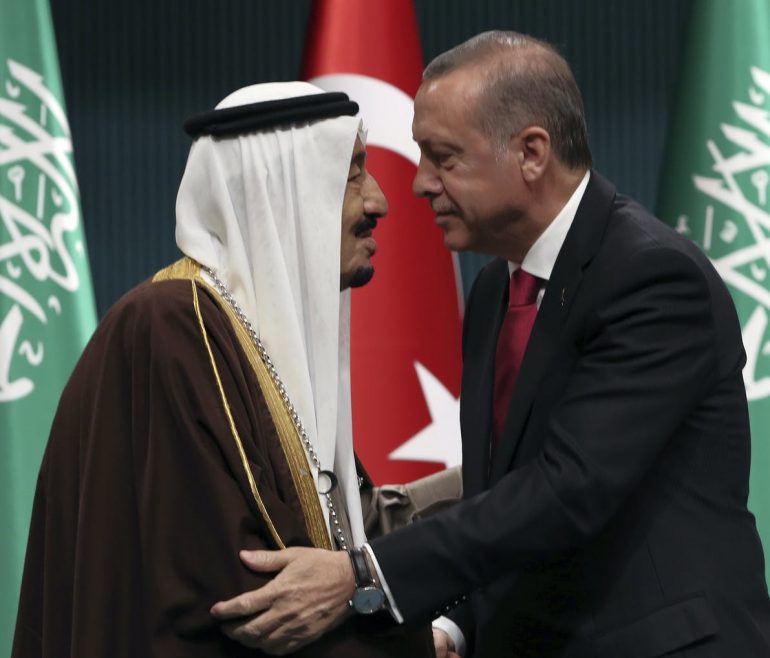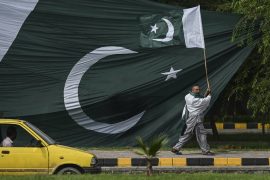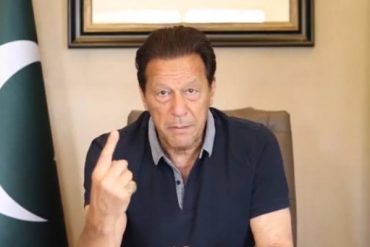STRAIGHT TALK by Hafeez Khan
I moved to Saudi Arabia in 1979. The fruits of oil wealth were beginning to show. Development was happening at a frantic pace all over the country. Based in the capital, Riyadh, the skyline was full of construction cranes. Those were the heady days of a new frontier attracting intense corporate interest along with fortune hunters. A boom unseen in the 2nd half of the 20th century.
I joined a prominent Saudi family which gave me an insight through interaction with business leaders and evolving bureaucracy. King Faisal’s vision and sagacity had encouraged Saudi youth to study, train and acquire skills abroad. They returned to their conservative society and blended in very well. It was refreshing mingling with this motivated cadre. Fiercely nationalistic yet extremely pragmatic.
We undertook a project in the Agricultural sector. A novelty for Saudis used to a desert. King Khalid was the Monarch. Having dabbled in politics, I keenly observed how Saudis interacted and their mannerism. Despite being an absolute monarchy, there was care for self-respect and generosity even when a common Bedouin met a powerful Prince. They were fiercely independent woven together in tribal affiliations giving space to each other despite financial disparity.
It is difficult to truly comprehend unless you have lived it. There is no way you can stereotype those times. Access for everyone was the relief valve that maintained harmony in Saudi society. Sharing of wealth and power structure was a strong bond. It continued till 2015 when King Salman took over.
His Crown Prince was younger brother Prince Muqrin Bin Abdul Aziz. Prince Muqrin, an ex air force pilot was an amiable person. I had the opportunity to attend his “majlis” when he was Governof Tabuk. That is when the upheaval started in the Royal line of succession and a change of format.
Within a few months Prince Muqrin was replaced by Prince Muhammad bin Nayef, son of a full brother to King Salman. He was removed mid 2017 by the present Crown Prince Mohammad Bin Salman. The tradition of preferring a younger brother over a son ended. The role of Allegiance Council of choosing the successor became ceremonial. Dynastic rule of Al Saud stands altered.
This changed another tradition. Till then despite their enormous wealth, religious significance and influence, Saudis had a soft image internationally. They would resolve issues via behind the scene moves, using their clout discreetly. No more. Saudi leadership has become assertive. Yemen’s conflict is an example.
Sensitivity about their image is replaced by seeking results irrespective of the cost. The unspoken role of Muslim Ummah leadership is being replaced by Saudi self interest. Similar to what President Trump adopted for USA.
Suddenly the warts amongst the 57 Muslim countries, having 22% of the world population are apparent. OIC was founded 50 years ago. It was expected to have a lead role in issues confronting its member states. The devastation faced by Muslims in Kashmir, Palestine, Libya, Yemen, and Syria has evoked a poor response. OIC is toothless, driven by self interest.
Most recently OIC’s incompetency came into focus on 5th August, marking a full year of India’s revocation of special status of Kashmir. Kashmir is the only Muslim majority province in India. Its demographics are being altered to convert it into a Hindu majority. Brutal and unspeakable atrocities are being inflicted on all ages and sexes while OIC keeps its criminal silence. Not even a squeak.
The Jeddah based OIC failed to convene even a Foreign Minister’s conference to take up this matter. Certain questions loom large. Is OIC just a piece of decoration or jewelry to be adorned to impress? It is guided by a Saudi response. Have they relegated their traditional role amongst Muslim Ummah to a back burner? Are they driven by their expanding partnership with India? Are they miffed by the recent developments between China and Iran thrusting CEPAC to the forefront of Road and Belt Initiative? Is USA influencing their judgment in choosing sides?
These are heavy questions with no easy answers. Running water always finds it course. There is an emergence of independent thinking amongst other prominent OIC members. The meeting in December 2019 in Malaysia was a very clear signal. Pakistan stayed away under Saudi influence. But for how long? There is a fire raging in our backyard. How long do we restrain ourselves?
The establishment of full diplomatic relations between UAE and Israel provides clear indications to where oil rich Gulf Monarchies are headed. Process of realignment within OIC has begun. Turkey, Iran, Malaysia, and Qatar make a formidable bloc. If Pakistan enters the fray it could lead to an emergence of a New Muslim Order.
Pakistan is joined at the hip with it Kashmiri brethrens. Indian belligerence under PM Modi is a reality that we endure each day. I wrote about the emergence of New World Order. These developments are evolving within that framework. PM Imran Khan’s positioning of Pakistan as an independent state acting in the best interest of the region does not sit well with Global Powers. It is used to a subservient, malleable leadership that bent to their will.
We must stay the course. There will be hardship like the one perpetuated recently by Saudis in recalling loans and reneging of oil supply on credit. We have to stand united as a nation to emerge successfully. The time of being pushed around is gone. We must stand on our own feet to gain respect as an emerging regional power.





